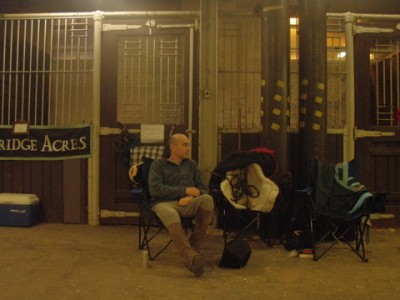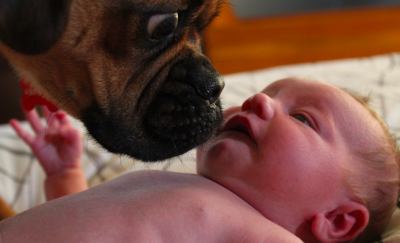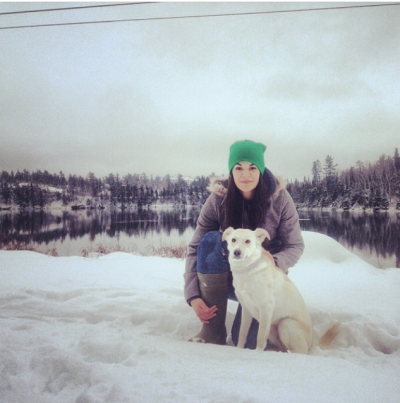 By Ariel Root, Department of Health Sciences
By Ariel Root, Department of Health Sciences
“Tony is waiting outside, his eyes crinkled into a smile. ‘Come inside the house,’ he says. He knows what I am feeling. And in I go, where the dogs lie flat on the kitchen floor, tails wagging, and the kettle is whistling, and the house is very warm.” ― Helen Macdonald, H is for Hawk
On January 21, Dr James Gillett visited Carleton University to help audience members explore the advantages of non-human therapy, and to question the boundaries between human and non-human interaction, explaining the impacts on mental health and well-being.

Photo by Ariel Root
Gillett introduced the concept of “One Health”—the presence of and relationship between humans and non-humans within the physical and social environments of one’s daily life. A One Health mentality considers both illness and health across species, questioning classification, and how humans relate to all other beings. Gillett believes that One Health initiatives represent action-based research that will bring about true change.
As a social scientist and sociologist at McMaster University, Gillett has found his academic career applicable to various interdisciplinary areas and topics, most recently explored with a One Health lens. Human and non-human interaction as it relates to sport, media, gender, etc. is the evolving direction of societal attention.
“This is a pressing issue in our society” Gillett notes, especially as “we are an aging society; so [this interaction] is prevalent and interesting” across populations and social groups. Gillett presented some of his current research across three population groups including older adults, students, and youth at risk. In older adults, Gillett mentioned that non-humans are very important companion animals, influencing the flow through active aging. “Family, which is important, includes non-humans as well,” and One Health “acknowledges the fact that people’s idea of care includes… non-humans.” Gillett illustrated the stress and concerns that older adults encounter about their animals when they are forced to consider moving into care facilities, and the need to take these concerns into consideration in relation to policies concerning health care for an aging population.
At McMaster University, along side Dr. Lori Campbell, Gillett has organized and supported the “Dogs At Mac” student wellness program. Every other week, at one location across campus, the program invites three or four therapy dogs from the SPCA to hang out with students, faulty, and staff at the University. The therapy dogs assist students cope with university-life stress. “One goal was to make the University more open to people—friendlier, caring,” says Gillett. Following a showcase of the program, a student considering future education at McMaster blogged that the Dogs At Mac program enticed her to go to McMaster the following year, “so the program totally worked.”
Gillett also described the impact of human and non-human relationships on youth at risk. He described programming between youth detention facility and the SPCA, bringing in 4 dogs for 4 weeks for 4 different boys to care for, and train. The program appears to have a positive influence on both the dogs and the boys.
Despite many of the positive findings, Gillett explains there are still complications and roadblocks. When it comes to animal relations, he says, “it’s unusual… [it’s] not really mainstream or “normal,”” so researchers still need to explain what it’s all about. Some people continue to belittle the research and its significance or importance, and that can influence overall support and funding. But Gillett’s perseverance is fuelled by his genuine curiosity and temperament. “I’m a curious person by nature. I would be interested in these questions even without a Sociology background. It’s not a job, it’s a vocation… something I do because I’m compelled.”
The One Health Initiative is a movement to forge co-equal, all-inclusive collaborations between physicians, veterinarians, dentists, nurses, and all scientific-health and environmentally related disciplines, and will test the boundary between what is human and what is not. And so, perhaps with this movement and mentality, Gillett imagines a time when description of depression, anxiety, or hardship to your physician will be followed with a prescription of dog adoption from the SPCA for a companion animal and emotional support—and who’s to say that time won’t come?
“The hawk had filled the house with wildness as a bowl of lilies fills a house with scent.” ― Helen Macdonald, H is for Hawk

